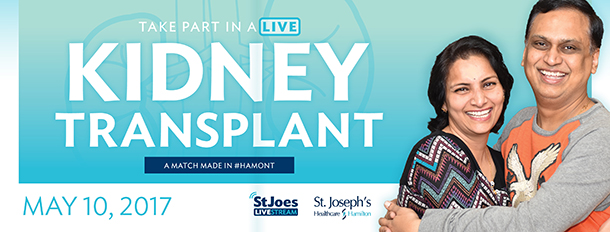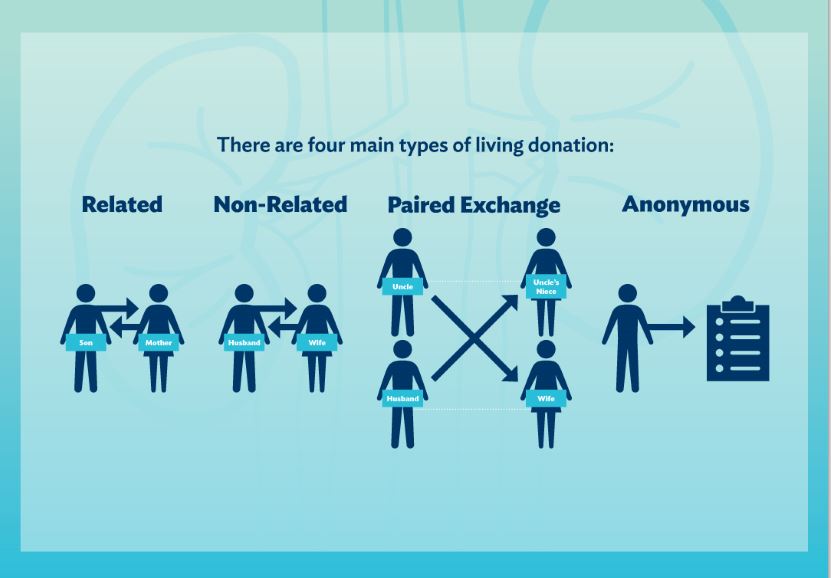




What is a kidney transplant?
A kidney transplant is a surgical treatment that places a healthy kidney from one person (the donor) into a person (the recipient) who no longer has good kidney function. Every person considering transplant as a treatment option undergoes a full medical and psychosocial evaluation to make sure they are a good candidate for transplantation.
Where do donated kidneys come from?

Living Kidney Donation While most people are normally born with two kidneys, you can live a healthy life with just one. Living kidney donation is the willing donation of a kidney from one person to a recipient in need. Living kidney donations are highly successful and for the donor it often provides a deep sense of satisfaction that they have helped someone in need.
Deceased Kidney Donation A deceased kidney donation occurs when a kidney is removed from someone who has recently died, with consent from a signed donor card or family. The donated kidney is either stored on ice or is connected to a machine that helps to preserve the kidney while it is transported.
Did you know? 1 organ donor can save up to 8 lives! It only takes 2 minutes to register. Register to be a donor at www.beadonor.ca
Making a kidney match
The goal of matching a donor with a recipient is for the donated kidney to be successfully accepted in the recipient’s body. While matching is important it is not everything – incompatible matches can still be successfully transplanted. St. Joe’s has a unique program with special expertise to successfully complete incompatible transplant matches. Recipients also have the opportunity to register in the national kidney paired exchange program where the recipient’s donor can give to a recipient nationally in exchange for another donor’s kidney.
There are three important factors to making a match:
Blood type testing
A donor and recipient need to have either the same or compatible blood types.
There are four basic blood types:
|
Type |
About |
Compatible with |
|
O |
The “universal donor” |
A,B, AB, O |
|
A |
Compatible with two other types |
A or AB |
|
B |
Compatible with two other types |
B or AB |
|
AB |
Can only accept AB |
AB |
Genetic testing (Human Leukocyte Antigen, HLA)
Special tests called tissue typing check the compatibility of the donor and recipient tissue (HLA) cells. Every person normally has a unique set of tissues inheriting half from each parent. Each parent and their child share half of the same proteins and identical twins share all the same proteins. Even unrelated donors may also share some of the HLA proteins. Fortunately antirejection medications work well in all these cases to prevent recognition of the donor cells.
Antibody testing
Antibody testing is done to find out how likely the recipient’s immune system is to accept or reject the donated kidney. Antibodies are proteins that help your body identify foreign objects in your body like viruses and bacteria. They are like soldiers who are ready to get rid of invaders that may harm your body. Your antibody levels can change after you have a severe infection, a blood transfusion, are pregnant or have surgery. The more antigens a donor and recipient have in common the more compatible their match is. Every recipient must take anti-rejection drugs for the rest of their life to prevent their immune system from rejecting the donated kidney.


